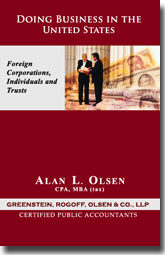Who Really Qualifies as a Dependent for Taxes?

How many dependents do you really have? Who can really be counted as a dependent? These are some of the most common questions that all taxpayers have. Can you count all of your children, live-in help, or perhaps a dog or other family pet? What about a friend who decides to crash at your place and basically mooch off you the entire year; can he or she be counted as a dependent?
As far as the IRS is concerned, there are two different kinds of dependents but there are dozens of scenarios that can fall under these two categories. There are also different rules for each type. The first type of dependent is classified as a qualifying child. The second type is a qualifying relative.
A qualifying child must be related to you, either by birth or adoption, or be a step or foster child. You must also provide more than half of the child’s total financial support and you can be the only person claiming that child on your return. To be a dependent the child must also be 18-years-old or younger, or if he or she is a full-time student, younger than 24-years-old.
The rules for being counted as a qualifying relative are much different. First, if your relative is a blood relative then he or she does not have to live with you in order to be counted. However, he or she must not provide more than half of his or her own support and that person cannot make more than $4000.
For a person who is not a blood relative to qualify as a dependent – like a lifelong friend who is down on his/her luck, or just plain lazy, or even your significant other – that person must live with you the entire year and their income must be less than $4,000 for the entire year. No one else can claim the person and you have to provide more than half of his or her financial support.
Doing Business in the United States
Doing Business in the United States By Alan Olsen, CPA 67 Pages $24.95 + $2.00 S/H Alan L. Olsen, CPA, MBA (tax) Foreign Corporations, Individuals and Trusts The booklet can be purchased vis this “link“. It discusses the basic issues of foreign corporations and individuals wishing to do business in America. This booklet contains detailed…
The Wash Sale Rule of Capital Gains Tax
The Wash Sale Rule of Capital Gains Tax Awash sale is a trading activity in which shares of a security are sold at a loss and substantially identical security is purchased within 30 days. The subsequent purchase could occur before or after the security is sold, creating a 61-day window that must be monitored to…
Employers linking employee premiums to health screen programs
Employers linking employee premiums to health screen programs As more employers require employees to take greater financial responsibility for their own health care as part of the consumerism movement, some employers are going even further, tying employees’ premium contributions to their participation in health risk appraisals and, in some cases, to improvements in health status.…
Persistence – Use Good Judgment
Persistence – Use Good Judgment Nothing in the world can take the place of Persistence. Talent will not; nothing is more common than unsuccessful men with talent. Genius will not; unrewarded genius is almost a proverb. Education will not; the world is full of educated derelicts. Persistence and determination alone are omnipotent. The slogan “Press…




